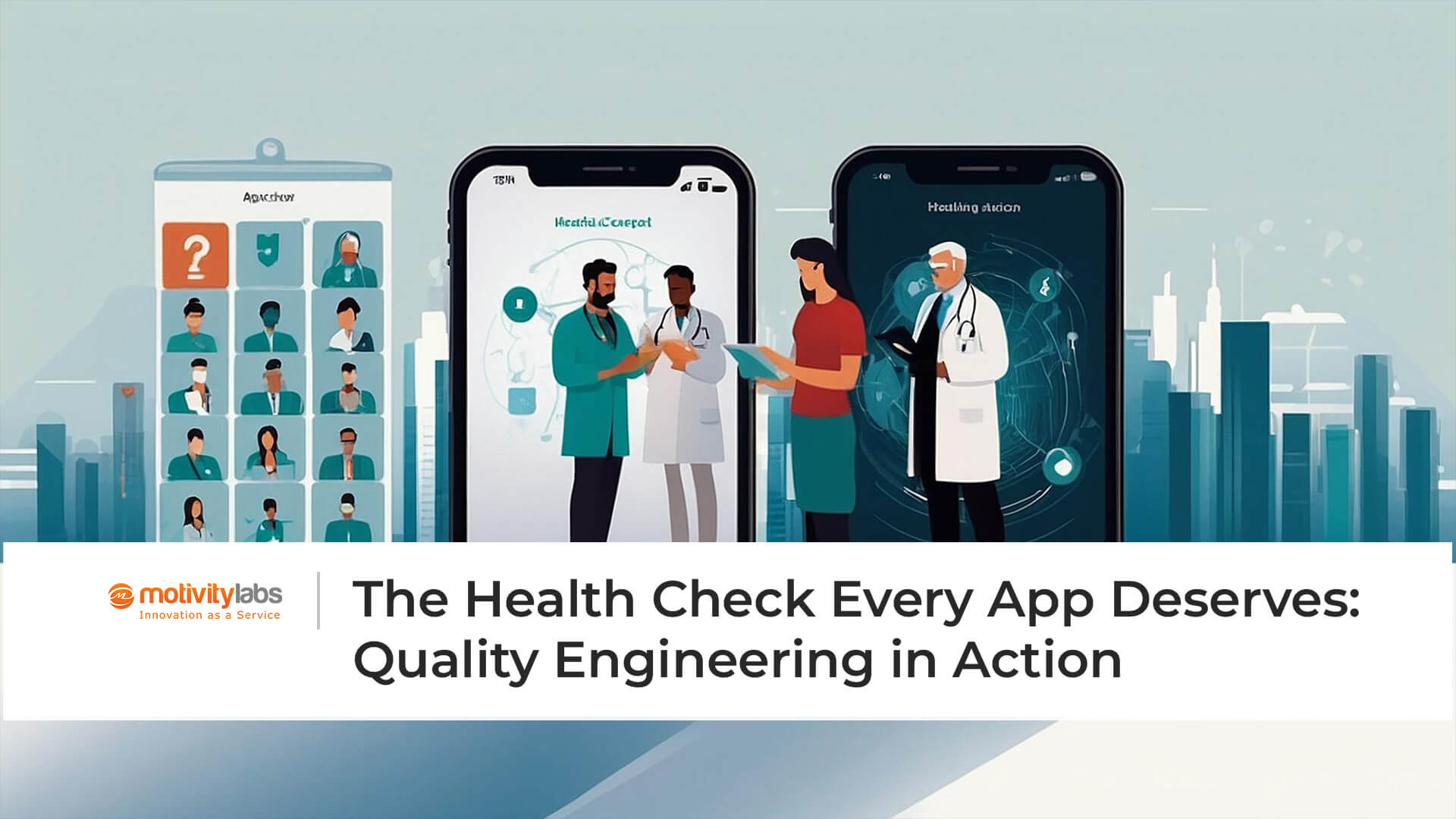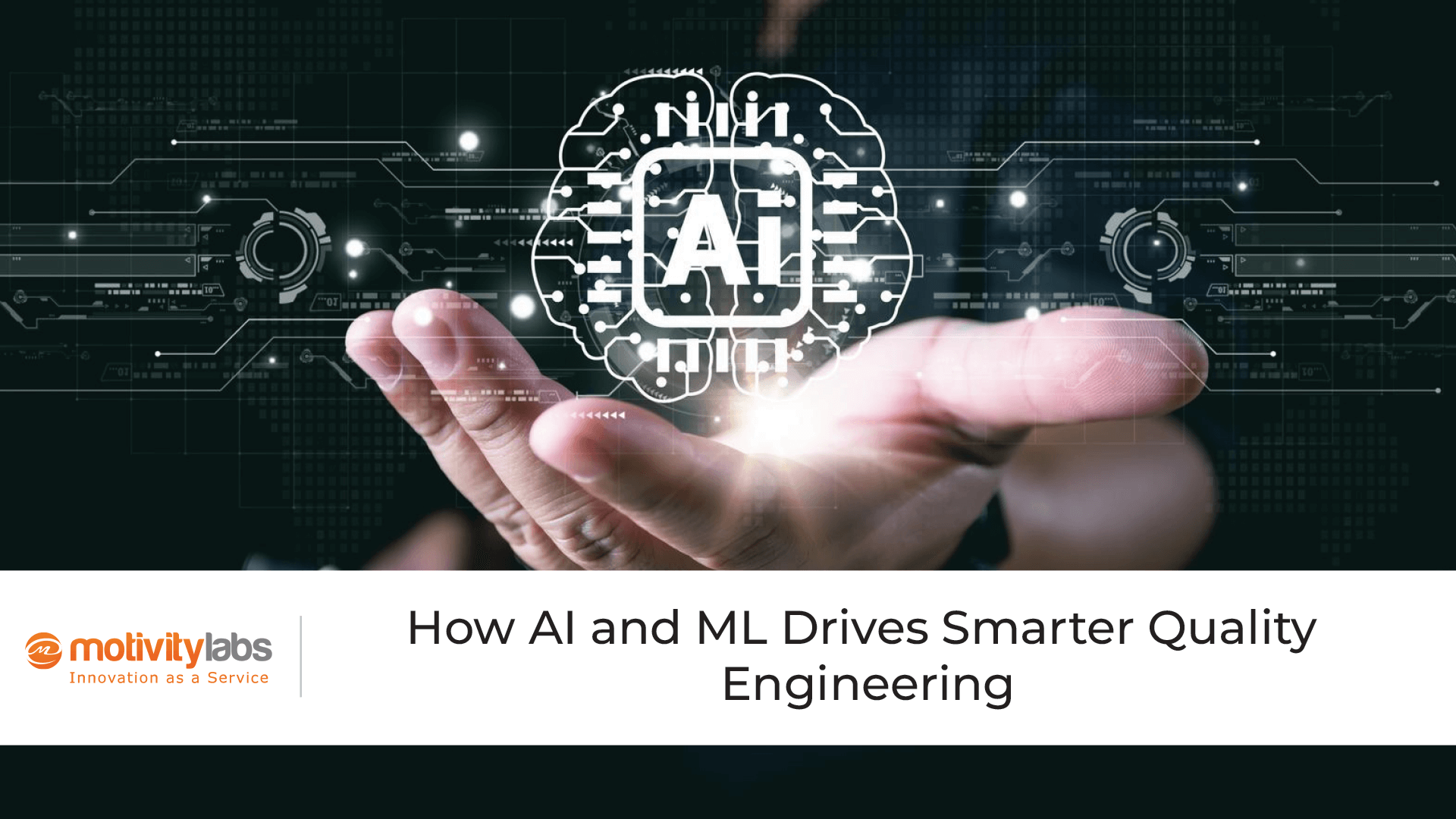Table of Contents
How AI Is Enhancing Software Quality Assurance and Testing
Software quality assurance (QA) and testing are critical components of modern software development. As applications become more complex and user expectations rise, the demand for robust QA processes has never been higher. 68% of testing experts say AI is the most important innovation in software testing for the future, and 24% of companies have already automated more than half of their testing process. In this evolving landscape, artificial intelligence (AI) is reshaping how testing is done, enabling faster, more accurate, and more efficient quality assurance processes.
This blog explores the role of AI in transforming software testing, highlighting the key benefits, tools, and strategies that are changing the game for development teams worldwide.
The Traditional Approach to Software Testing
Before diving into the AI-driven transformation, it is necessary to understand the traditional software testing methods. Typically, QA teams manually execute test cases, checking software for bugs, errors, and performance issues.
These tests are often repeated for different software builds and across various environments. While effective, this manual approach can be time-consuming, error-prone, and inefficient, especially for larger applications.
The Role of AI in Software Testing
Artificial intelligence is now being used to address the challenges associated with manual testing. By leveraging machine learning (ML) algorithms, natural language processing (NLP), and predictive analytics, AI-powered testing tools can automate and optimize various stages of the testing process.
Let us explore some of the key ways AI is enhancing software QA.
Test Automation at Scale
AI is improving software testing by enabling test automation. In traditional testing, repetitive tasks, such as regression testing, often take significant time. AI allows for test automation that can run at scale without human intervention, ensuring faster turnaround times and greater efficiency.
AI-based systems can learn from previous tests and adapt to changes in the application. They can then automatically generate relevant test cases based on these learnings. This capability significantly reduces the time it takes to execute tests and increases the coverage, ensuring software is thoroughly tested without manual effort.
Advanced Test Case Generation
Generating effective test cases is often a manual and error-prone process. With AI, the process becomes more intelligent. AI algorithms can analyze the application’s code, previous test cases, and user behaviors to predict potential risk areas and generate test cases that are more likely to catch defects.
Furthermore, AI can prioritize test cases based on the likelihood of failure, helping testing teams focus on the areas that need the most attention. This means that teams can detect bugs earlier in the development cycle, reducing costs and improving the overall quality of the software.
Intelligent Defect Detection
AI-powered tools can detect defects in software more effectively than traditional testing methods. By analyzing large volumes of data from previous testing cycles, AI systems can identify patterns that human testers might miss. These tools can flag anomalies in the code or functionality that could lead to potential issues in the future.
Furthermore, AI can learn from past defects and continuously improve its ability to identify new issues, ensuring software quality improves over time. This predictive capability helps development teams stay ahead of issues before they escalate.
Visual Testing
In the present user-focused development environment, visual elements are crucial to the application’s success. AI is revolutionizing visual testing by automating the process of checking graphical user interface (GUI) elements for visual inconsistencies, layout issues, and responsiveness across different devices.
AI-powered testing tools use computer vision and image recognition algorithms to simulate user interactions with the software’s UI. This allows them to identify any visual discrepancies effectively. Furthermore, it ensures software meets the highest visual standards, providing users with a consistent and flawless experience.
Performance Testing and Monitoring
Performance testing is another area where AI is making significant strides. Traditional performance testing requires running multiple tests under different conditions to evaluate how the application handles various stress levels. AI tools can optimize this process by predicting the way the application will perform under different loads and automatically scaling the tests to simulate real-world traffic.
AI also enables continuous monitoring of application performance in real time. This allows for proactive identification of performance bottlenecks and resource shortages, ensuring issues are resolved before they affect end-users.
Continuous Testing and Integration
In the present agile and DevOps-driven environments, continuous integration (CI) and continuous delivery (CD) have become the standard. AI integrates seamlessly with these practices by automating the testing of every new code change or update before it is merged into the main branch. This ensures that bugs and issues are detected immediately, allowing for quick fixes and smoother releases.
AI-powered tools can automatically determine which tests need to run based on the nature of code changes. This helps optimize the CI/CD pipeline and reduces the overall time spent on testing. As a result, teams can support faster release cycles while maintaining high-quality standards.
Predictive Analytics for Risk Assessment
Risk assessment is a critical part of the software testing process. AI can analyze historical data from testing, development, and user feedback. It uses this analysis to predict which features or areas of the application are most likely to fail. By understanding risk patterns, AI can guide testing efforts, ensuring that teams focus on the areas that pose a significant risk to quality.
Additionally, AI’s ability to analyze large datasets allows for more accurate and data-driven decisions. This leads to better prioritization of testing tasks and more efficient resource allocation.
AI Tools Revolutionizing Software Testing
Several AI-powered tools are already making a significant impact on software testing. Some of the popular ones include:
- Testim.io: Testim leverages AI to automate the tests’ creation, execution, and maintenance. It uses machine learning to adapt to changes in the application and optimize the testing process.
- Applitools: Applitools uses AI-powered visual testing to ensure that the application’s user interface meets the highest quality standards across different devices and screen sizes.
- Functionize: Functionize is an AI-powered test automation tool that uses machine learning to automate complex tests, enabling quicker feedback and faster release cycles.
- Mabl: Mabl uses machine learning to automate functional and visual testing, continuously improving its tests as it learns from previous results.
These tools are just a few examples of how AI is reshaping the software testing landscape, providing developers and QA teams with more intelligent and efficient solutions to ensure the highest quality software.
The Future of AI in Software Testing
As AI technology continues to advance, the potential for further enhancing software testing is immense. In the future, we can expect to see more intelligent test automation, deeper integration with development workflows, and even greater capabilities for predictive defect detection. AI will also play a critical role in improving collaboration between development and QA teams. This helps them work together more effectively to deliver high-quality software at speed.
Why Motivity Labs Is the Partner You Need
Motivity Labs understands the importance of high-quality software and the potential of AI to enhance testing and quality assurance. Their team stays ahead of the curve by integrating the latest AI-powered testing tools into the development process, delivering faster, more advanced, and more reliable software releases.
Whether an organization is looking to implement AI-powered test automation, streamline its CI/CD pipeline, or improve software performance, Motivity Labs brings the expertise needed to make it happen. By partnering with Motivity Labs, businesses can embrace the future of software testing, enhancing their quality assurance processes and accelerating time-to-market.



